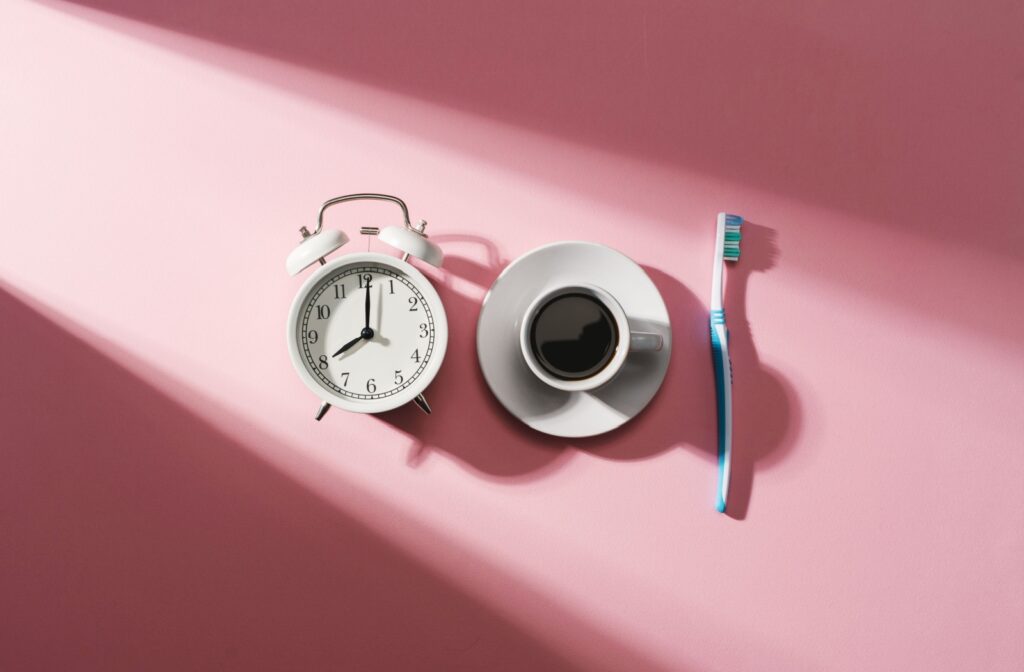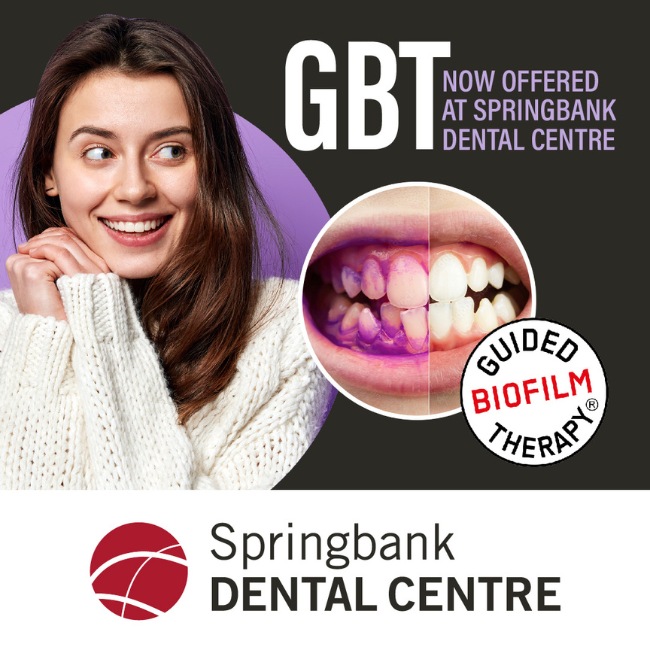You’re likely familiar with the general recommendation to brush your teeth when you wake up and before you sleep, but when exactly should you brush? Should you brush before or after eating breakfast?
Brushing before can protect your teeth from acids in food, while brushing after may give you a fresher feeling. Waiting 30 minutes after eating to brush your teeth is ideal. Ultimately, the most important thing is that you are brushing your teeth in the morning.
Brushing and flossing your teeth every day and regularly visiting your dentist for professional cleanings are important habits for maintaining good oral health.
Brushing Before Breakfast
Brushing your teeth first thing in the morning removes the plaque that formed on your teeth overnight while you were sleeping. Using fluoride toothpaste to remove this plaque also adds a layer of protection over your tooth enamel.
Your tooth enamel is the hard, outer layer of your teeth. It protects the inner layers of your teeth (the dentin and the pulp) and is the hardest substance in your body. Brushing before breakfast can protect your enamel, especially if you consume acidic breakfast items like orange juice and coffee.
Brushing your teeth can also stimulate saliva production. Saliva helps break down food and also protects the teeth against bacteria.
Brushing After Breakfast
But what if you enjoy the feeling of refreshing breath after breakfast? Or what if you simply want your morning cup of coffee right after getting out of bed?
You can still brush your teeth after eating breakfast, just wait 1 hour after eating to brush. This allows your saliva to flush away remnants of acidic food. Brushing your teeth right after eating acidic foods can wear away the enamel on your teeth.
How to Deal With Stains
What if you prefer brushing before breakfast, but are concerned about foods staining your teeth? After all, breakfast foods like coffee and tea are common tooth-staining culprits. Other foods that can stain include:
- Red wine and juices
- Berries
- Tomato sauce, soy sauce, and balsamic vinegar
- Dark-coloured sodas and energy drinks
- Candy
The good news is, you don’t need to give up coffee in the morning to prevent stains. Try swishing some water around your mouth and across the surface of your teeth after eating. You can also try drinking stain-causing beverages through a straw. For hot drinks like coffee and tea, use a straw with heat-resistant material such as silicone.
You may also want to consider at-home or professional whitening treatments. Quitting smoking also eliminates another major stain-causing substance: tobacco.

More Brushing Tips
Regularly brushing your teeth helps prevent tooth decay and gum disease. Gum disease can increase the risk of harmful bacteria entering the bloodstream, so consistent oral hygiene habits go beyond aesthetics. Studies also suggest that poor oral health is linked to cardiovascular disease.
According to the Canadian Dental Association (CDA), brushing after every meal is ideal (remember: wait at least an hour). But people should brush once a day at a minimum (twice a day is best) before they go to bed. You should brush:
- With a soft-bristled toothbrush
- At a 45-degree angle at the gum line where your teeth and gums meet
- Gently in circular motions; brushing too hard can damage gums
- For 2 to 3 minutes (try timing yourself)
- With a variety of patterns: this prevents missing the same spots over and over
Don’t Forget to Floss
Many of us dislike flossing, but it can make a big difference. The CDA recommends flossing at least once a day and notes that not flossing means you’re not cleaning more than a third of your teeth’s surface area. Here are some tips for effective flossing:
- Floss both sides of each tooth, wrapping around the tooth in a “C” shape
- Don’t forget to floss the back of your last molars
- Don’t flush floss down the toilet
- Floss before brushing, not after
How Often Should You Visit the Dentist?
Regular dental check-ups can help you and your dentist spot potential problems before they get more serious. They’re also an opportunity to remove tartar from your teeth, which can only be done in a professional setting.
How often you should visit the dentist depends on your individual oral health needs. Some people just need one visit a year, while others require more frequent check-ups. Talk to your dentist about what they recommend based on an examination of your oral health requirements.
In addition to brushing and flossing, other pillars of preventive care include not smoking, not using tobacco products, and limiting how much sugary food and drink you partake in.
Preventive Dental Care in SW Calgary
Our team at Springbank Dental Centre believes in preventive care and education. In other words, we want to help you prevent dental health problems from happening in the first place. This means we focus on education and thorough exams. Knowing your medical history also helps us treat patients as a whole.
Whether you’re due for your next cleaning or are interested in orthodontics, visit our dental clinic in SW Calgary. We also offer dental services for children. Contact us to book an appointment today.




